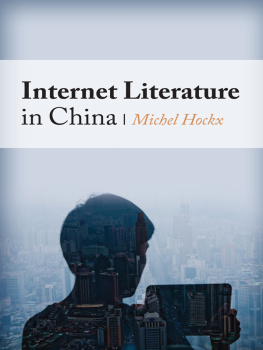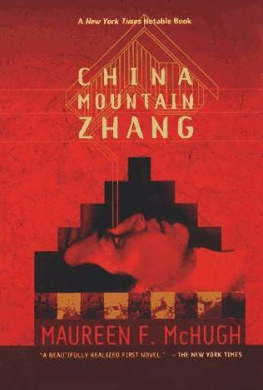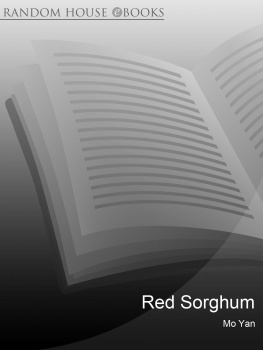Zhang Jiong - Literature and Literary Theory in Contemporary China
Here you can read online Zhang Jiong - Literature and Literary Theory in Contemporary China full text of the book (entire story) in english for free. Download pdf and epub, get meaning, cover and reviews about this ebook. year: 2017, publisher: Routledge, genre: Politics. Description of the work, (preface) as well as reviews are available. Best literature library LitArk.com created for fans of good reading and offers a wide selection of genres:
Romance novel
Science fiction
Adventure
Detective
Science
History
Home and family
Prose
Art
Politics
Computer
Non-fiction
Religion
Business
Children
Humor
Choose a favorite category and find really read worthwhile books. Enjoy immersion in the world of imagination, feel the emotions of the characters or learn something new for yourself, make an fascinating discovery.
- Book:Literature and Literary Theory in Contemporary China
- Author:
- Publisher:Routledge
- Genre:
- Year:2017
- Rating:4 / 5
- Favourites:Add to favourites
- Your mark:
- 80
- 1
- 2
- 3
- 4
- 5
Literature and Literary Theory in Contemporary China: summary, description and annotation
We offer to read an annotation, description, summary or preface (depends on what the author of the book "Literature and Literary Theory in Contemporary China" wrote himself). If you haven't found the necessary information about the book — write in the comments, we will try to find it.
Zhang Jiong: author's other books
Who wrote Literature and Literary Theory in Contemporary China? Find out the surname, the name of the author of the book and a list of all author's works by series.
Literature and Literary Theory in Contemporary China — read online for free the complete book (whole text) full work
Below is the text of the book, divided by pages. System saving the place of the last page read, allows you to conveniently read the book "Literature and Literary Theory in Contemporary China" online for free, without having to search again every time where you left off. Put a bookmark, and you can go to the page where you finished reading at any time.
Font size:
Interval:
Bookmark:

Marxism initiated a new era not only for people to fight for socialist future, but also for each discipline of sciences to witness profound changes. In such a context, literature, which has always been closely related to politics, will inevitably move toward a new direction.
This book is composed of two parts. elucidates the authors insights into major issues concerning literary theories (e.g., the relationship between literature and people, literature and reality, perception and rationality in literary creation, etc.). This book will appeal to scholars and students of literary aesthetics and Chinese literary and cultural studies. People who are interested in history of contemporary Chinese literature will also benefit from this book.
Zhang Jiong is the director of the Institute of Literature, Chinese Academy of Social Sciences, and a famous Chinese literary theorist and historian. He has studied Chinese literary theories and history for more than 60 years.
The China Perspectives series focuses on translating and publishing works by leading Chinese scholars, writing about both global topics and China-related themes. It covers Humanities & Social Sciences, Education, Media and Psychology, as well as many interdisciplinary themes.
This is the first time any of these books have been published in English for international readers. The series aims to put forward a Chinese perspective, give insights into cutting-edge academic thinking in China, and inspire researchers globally.
For more information, please visit https://www.routledge.com/series/CPH
Existing titles:
Beyond the Iron House
Lu Xun and the modern Chinese literary field
Sun Saiyin
Literature and Literary Criticism in Contemporary China
Zhang Jiong
Literature and Literary Theory in Contemporary China
Zhang Jiong
Forthcoming titles:
An Outline of Chinese Literature I
Yuan Xingpei
An Outline of Chinese Literature II
Yuan Xingpei
Seven Lectures on Wang Guoweis Renjian Cihua
Florence Chia-Ying Yeh
Zhang Jiong

This book is published with financial support from Innovation Project of CASS
Translated by Yang Limeng and Wu Yisheng
First published 2017
by Routledge
2 Park Square, Milton Park, Abingdon, Oxon OX14 4RN
and by Routledge
711 Third Avenue, New York, NY 10017
Routledge is an imprint of the Taylor & Francis Group, an informa business
2017 Zhang Jiong
The right of Zhang Jiong to be identified as author of this work has been asserted by him in accordance with sections 77 and 78 of the Copyright, Designs and Patents Act 1988.
All rights reserved. No part of this book may be reprinted or reproduced or utilised in any form or by any electronic, mechanical, or other means, now known or hereafter invented, including photocopying and recording, or in any information storage or retrieval system, without permission in writing from the publishers.
Trademark notice: Product or corporate names may be trademarks or registered trademarks, and are used only for identification and explanation without intent to infringe.
British Library Cataloguing-in-Publication Data
A catalogue record for this book is available from the British Library
Library of Congress Cataloging-in-Publication Data
Names: Zhang, Jiong, 1933 author. | Yang, Limeng, translator. | Wu, Yisheng (Translator), translator.
Title: Literature and literary theory in contemporary China / Zhang Jiong ; translated by Yang Limeng and Wu Yisheng.
Description: Abingdon, Oxon ; New York : Routledge, 2017. | Series: China perspectives series | Includes bibliographical references and index.
Identifiers: LCCN 2016056767 | ISBN 9781138898745 (hardcover) | ISBN 9781315708409 (ebook)
Subjects: LCSH: Chinese literature20th centuryHistory and criticismTheory, etc. | Socialism and literatureChina. | Chinese literatureAesthetics. | Literature and societyChinaHistory 20th century.
Classification: LCC PL2303 .Z421647 2017 | DDC 895.109/005dc23
LC record available at https://lccn.loc.gov/2016056767
ISBN: 978-1-138-89874-5 (hbk)
ISBN: 978-1-315-70840-9 (ebk)
Typeset in Times New Roman
by Apex CoVantage, LLC
In China, literature theory can trace its history back to the ancient times, to some sections of the ancient book Shang Shu (The Book of History) and to some of Confucius teachings. The period from the Wei-Jin Dynasties (220420) to the Northern and Southern Dynasties (420589) is recognized as the era of literary self-consciousness. Classical works of literary theories in this period include the Dianlun Lunwen (Historical Allusions and Essays) by Cao Pi, Wen Fu (A Poetic Exposition on Literature) by Lu Chi, Wen Xin Diao Long (The Literary Mind and the Carving of Dragons) by Liu Xie and Shi Pin (Critique of Poetry) by Zhong Rong. In particular, Wen Xin Diao Long presented a systematic exposition of the stylistic features and literary creation thinking, as well as the laws of artistic expression in literary works, and was therefore viewed by subsequent literary theorists as comparable with the Poetics by Aristotle, an ancient Greek philosopher, though they discussed different topics. After the Tang and Song dynasties (618907 and 9601279), there were fragmented brilliant opinions in notes on poets and poetry and relevant works, as well as in novel comments by Jin Shengtan, but most of them were based on sentimental perceptions rather than on systematic theories. In the late Ming dynasty (13681644) and early Qing dynasty (16441911), the system of dramatic theories was established by Li Yu in his Health Preserving and Cultivating in Feelings Jotted Down Occasionally. In the late Qing dynasty and early Republic of China (19121949) period, new ideas were put forward by Liang Qichao and Wang Guowei in their works of literary theories, most of which were single works instead of systematic monographs.
After the rise of the New Culture Movement (around the time of the May 4th Movement in 1919), the Western thoughts of scientism and humanism came into China in a new formidable manner. Ever since then the May 4th New Culture Movement had pressed forward in China under the banner of science and democracy. In the meantime, Marxism was also introduced into China after the October Revolution of 1917 broke out in Russia. The aforesaid thoughts therefore constituted the ideological and theoretical background for birth and development of Chinese new literature theories. At that time, however, there were more translated and introductory than systematic works in the circles of literary theory and criticism. It was in 1928 that Pan Zinians Introduction to Literature came out. In the transition from literary revolution to revolutionary literature and during the left-wing literatures debates against its oppositions, many writers had contributed much to the development of new literary theories, including Chen Duxiu, Li Dazhao, Hu Shi, Lu Xun, Guo Moruo, Qu Qiubai, Wen Yiduo, Liang Shiqiu, Hu Feng and Zhou Yang, some of whom were oriented to Marxism but some others to scientism and humanism. The
Font size:
Interval:
Bookmark:
Similar books «Literature and Literary Theory in Contemporary China»
Look at similar books to Literature and Literary Theory in Contemporary China. We have selected literature similar in name and meaning in the hope of providing readers with more options to find new, interesting, not yet read works.
Discussion, reviews of the book Literature and Literary Theory in Contemporary China and just readers' own opinions. Leave your comments, write what you think about the work, its meaning or the main characters. Specify what exactly you liked and what you didn't like, and why you think so.



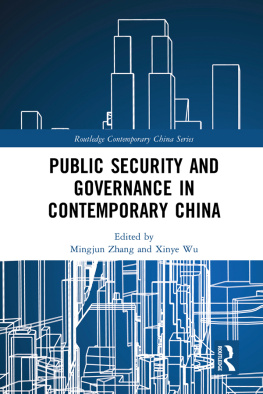
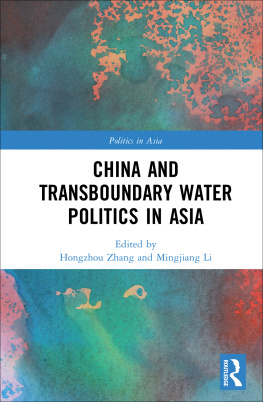
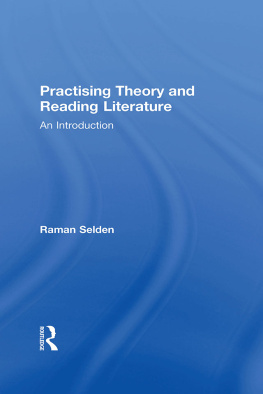
![Zhang Gongzhe [张公者] - Contemporary Chinese Calligraphy [当代中国书法]](/uploads/posts/book/126572/thumbs/zhang-gongzhe-contemporary-chinese.jpg)
